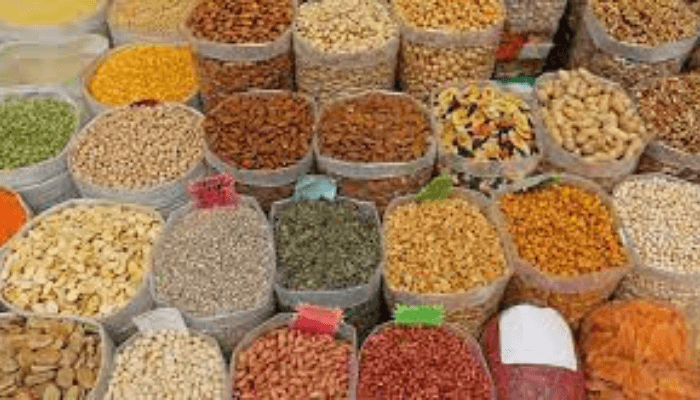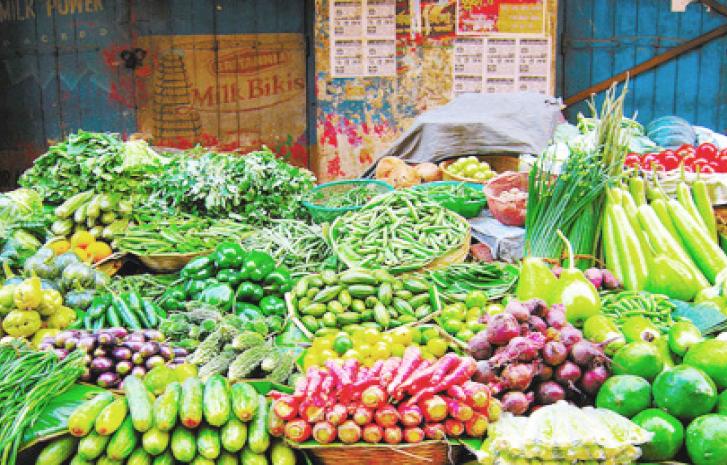Economic Importance Of Palm Oil In Nigeria – Palm oil is a versatile, edible oil that is derived from the fruit of the oil palm tree. It is a vital ingredient in a wide range of food products, from margarine and cooking oil to chocolate and baked goods. In Nigeria, palm oil is a significant source of income, providing employment for millions of people and contributing to the country’s economy.
Palm Oil is a very important part of a nation’s economy for several reasons, one major reason is the number of persons the sub-sector employs. In a country at an early developmental stage like Nigeria,it employs far more people than all other industries or sectors put together that is between 60-70 percent of the total workforce. Closely related to that is the fact that most nations’ agricultural activities are undertaken in the rural areas where the majority of the poor reside.Economic Importance of Palm Oil in Nigeria
Consequently, a well-developed palm crude oil sub-sector has an immense capacity for poverty reduction.
Read Also: 10 Economic Importance Of Orange In Nigeria
In addition to the above, the palm crude oil sub-sector in a country in an early stage of development has the capacity to be a major source of foreign exchange and thus spur growth and development. It thus becomes very important for a country’s strategic interest to develop its palm oil sub-sector rather than rely only on imports.
Despite its many benefits, palm oil production in Nigeria faces numerous challenges, including poor infrastructure, limited access to credit, and competition from other countries. However, with the right policies and support, Nigeria can continue to develop its palm oil industry and reap economic benefits for years to come.
The Historical and Cultural Significance of Palm Oil in Nigeria
Palm oil has played an essential role in Nigeria’s cultural and historical heritage. The oil palm tree is native to West Africa, and for centuries, it has been a source of food, medicine, and other essential materials. In Nigeria, palm oil is a symbol of community and is used in traditional ceremonies and rituals.
Palm oil was also an essential commodity during the era of the transatlantic slave trade. European traders exchanged palm oil for African slaves, which helped to fuel the growth of the palm oil industry. The oil was then shipped to Europe, where it was used in the production of soap and other products.
In Nigeria, palm oil production is closely tied to the country’s colonial history. During the British colonial era, palm oil was one of Nigeria’s most significant exports, and the industry played a critical role in the country’s economic development. Information Guide Nigeria
The oil palm subsector of the Nigerian economy is a potential productive sector that could be used to diversify the economy and ward it from shocks in the
crude oil and gas market after several years of neglect. Good Morning Love Message
According to Purvis (1970) historically, this subsector has been a source of growth in a stagnant economy because of the numerous economic potentials of palm oil. Ahmed (2001) argued that the economic tree crop has provided direct employment to about four million Nigerians in about 20 oil palm-growing states in Nigeria and indirectly to other numerous people involved in processing and marketing.
Read Also: 10 Economic Importance of Kolanut in Nigeria
How Palm Oil is Produced: A Step-by-Step Guide
Palm oil is a versatile and widely used vegetable oil that is extracted from the fruit of the oil palm tree. The process of producing palm oil involves several steps, each of which is critical to ensuring a high-quality final product.
The first step in producing palm oil is the harvesting of the fruit. The fruit is then transported to a processing plant where it is sterilized and the fruit is separated from the bunch.
Next, the fruit is pressed to extract the oil, which is then clarified and purified. The oil is then further processed to remove any impurities, including free fatty acids and phospholipids.
Once the oil has been processed, it is ready for distribution and use. Palm oil is a highly versatile oil that is used in a wide range of products, including food, cosmetics, and biofuels. Romantic Love Messages
It’s important to note that the production of palm oil can have significant environmental impacts. Sustainable palm oil production aims to minimize these impacts by promoting practices that protect the environment and the rights of workers and local communities.
Read Also: 10 Economic Factors in Nigeria
10 Economic Importance Of Palm Oil In Nigeria
Palm oil is a vital and versatile vegetable oil that is widely used in the food, cosmetics, and biofuel industries. In Nigeria, palm oil is a significant source of income, providing employment for millions of people and contributing to the country’s economy. Here are ten economic reasons why palm oil is important in Nigeria:
1. Employment Generation:
Palm oil production provides employment for millions of Nigerians, both directly and indirectly. The industry provides jobs for farmers, plantation workers, traders, transporters, and processors. In addition, many small businesses have been created to cater to the needs of those involved in the palm oil industry.
2. Contribution to GDP:
Palm oil is a significant contributor to Nigeria’s Gross Domestic Product (GDP). According to the Central Bank of Nigeria, the oil palm industry accounted for over 3.7% of the country’s GDP in 2019. The industry also generates billions of dollars in export revenue for the country. Duties of a Paraprofessional
3. Rural Development:
Palm oil production plays a critical role in rural development in Nigeria. Most of the palm oil production takes place in rural areas, and the income generated from palm oil enables these communities to invest in education, health, and other essential services.
Read Also: 10 Economic Factors Affecting Business in Nigeria
4. Poverty Reduction:
The income generated from palm oil production has helped to reduce poverty in Nigeria. Small-scale farmers who cultivate oil palm trees have been able to improve their standard of living by selling the palm oil they produce. This has also helped to improve the economic status of rural communities. NYSC Portal
5. Foreign Exchange Earner:
Palm oil is one of Nigeria’s most significant export products, generating billions of dollars in foreign exchange revenue. The export of palm oil and related products has helped to boost Nigeria’s foreign reserves and reduce the country’s reliance on oil exports.
6. Food Security:
Palm oil is a vital ingredient in many food products, including cooking oil, margarine, and baked goods. The availability of palm oil helps to ensure food security in Nigeria, as it is a vital component in many households’ diets.
7. Industrial Use:
Palm oil is used in the manufacturing of a wide range of products, including cosmetics, soap, and biofuels. The oil’s versatility and low cost have made it a popular choice for industrial use, driving further demand for the product.
8. Government Revenue Generation:
The Nigerian government generates revenue from the palm oil industry through taxes and levies. This revenue is used to finance infrastructure development, education, and other essential services.
9. Investment Opportunities:
The palm oil industry in Nigeria offers many investment opportunities, particularly in the areas of processing and value addition. Entrepreneurs can invest in setting up palm oil processing plants, providing additional employment opportunities and boosting the local economy.Duties of an Aerospace Engineer
10. Agricultural Development:
Palm oil production is an important component of Nigeria’s agricultural sector. The industry is one of the few agricultural sectors that can compete with oil exports in terms of revenue generation. As such, the government has taken steps to encourage the growth of the industry and support its development. JAMB Portal
Read Also: 10 Economic Challenges In Nigeria
Conclusion
In conclusion, the economic importance of palm oil in Nigeria cannot be overstated. The industry provides employment, generates revenue, and supports rural development and poverty reduction. As such, the government and stakeholders must continue to support the growth and development of the industry, while ensuring sustainable and responsible practices.
Check JAMB RESULT
Check and Confirm: How much is Dollar to Naira





